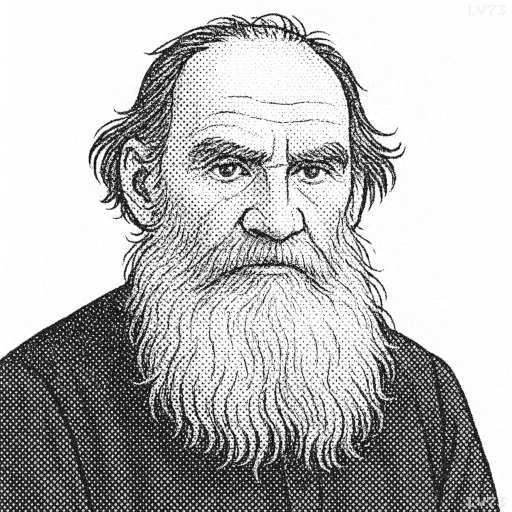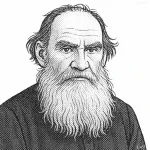“To say that a work of art is good, but incomprehensible to the majority of men, is the same as saying of some kind of food that it is very good but that most people can’t eat it.”

- September 9, 1828 – November 20, 1910
- Born in Russia
- Writer, philosopher
table of contents
Quote
“To say that a work of art is good, but incomprehensible to the majority of men, is the same as saying of some kind of food that it is very good but that most people can’t eat it.”
Explanation
In this quote, Leo Tolstoy challenges the idea that art can be truly great if it is inaccessible or incomprehensible to the majority of people. He compares such a work of art to a delicious food that cannot be eaten by most people, suggesting that if a piece of art cannot be understood or appreciated by a broad audience, it cannot be considered universally good or meaningful. For Tolstoy, true art has the ability to communicate emotions, ideas, and truths in a way that resonates with all people, not just a select few who are able to grasp its complexity or abstract qualities. In this sense, art’s value is found in its capacity to engage and connect with the wider public, not in its exclusivity or intellectual elitism.
This perspective remains highly relevant today, especially when considering the often elitist nature of certain forms of art, such as contemporary art or experimental music, which can be difficult to understand or appreciate for many people. While some may argue that art’s purpose is to provoke thought or challenge established norms, Tolstoy’s quote emphasizes the democratic nature of art—that great art should be accessible and meaningful to all, not just those with specific knowledge or tastes. Art that leaves people feeling alienated or unmoved by its complexity is, for Tolstoy, not truly fulfilling its potential as a form of expression.
Tolstoy himself was deeply invested in the idea that art should serve humanity by conveying universal truths and emotions in a way that could be understood and felt by all. He rejected art that was intentionally obscure or difficult to interpret, believing that it lost its value if it failed to connect with a broader audience. This quote highlights Tolstoy’s belief that art’s greatness lies not in its intellectual complexity, but in its ability to communicate shared human experiences. True art, for Tolstoy, should be able to speak to the hearts and minds of a diverse and wide-ranging audience, providing a universal language that transcends individual backgrounds and knowledge.
Would you like to share your impressions or related stories about this quote in the comments section?


